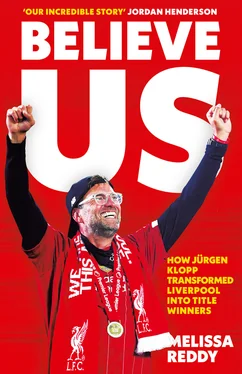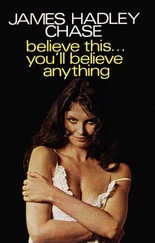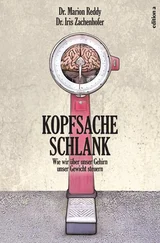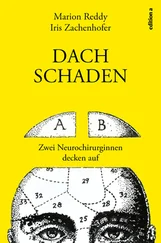As a player, he was fascinated by watching how managers work — from implementing their philosophies to handling different personalities, balancing squad dynamics and drafting plans that extended beyond match preparation. Klopp had resolved to travel around Europe to absorb as much knowledge as possible from coaches when he hung up his boots. However, his immediate transition from pulling on a shirt for Mainz to becoming their manager paused that idea for seven years. Switching from the Opel Arena to Dortmund further shelved it for the same amount of time and now Klopp was fresh off a four-month sabbatical and about to become Liverpool manager.
That night, when he returned to his suite at the Plaza Hotel, he thought about how he wouldn’t change anything about his path, his choices or the timing of them, relating as much to his wife, Ulla Sandrock.
That same evening, Liverpool stumbled to yet another dispiriting draw at Anfield. The sound of the final whistle against FC Sion was met with booing for the third time in four games at the famed ground. Over in the Bronx, the Red Sox were defeated 4–1 by the Yankees, their greatest rivals. Yet those results couldn’t dilute FSG’s celebratory mood after finally securing the manager they had coveted since their takeover of Liverpool in 2010.
Back at Melwood, it was hard to escape the feeling that Brendan Rodgers’ time was running out. After Liverpool’s 1–1 draw at Goodison Park on 4 October that left them 10th in the league table, Rodgers was driving back home, when he received a phone call from Mike Gordon relieving him of his duties. News of his departure quickly broke, with Klopp’s status as the prime candidate to replace the Northern Irishman dominating the coverage.
Conversations at Liverpool’s training complex centred around him being so heavily linked with the job. ‘There was such a buzz and he was really high profile as well, which got the lads going,’ Adam Lallana recalls. ‘I remember us sitting in the canteen discussing that he ticks all the boxes for Liverpool. We weren’t going to outspend the likes of City, United and Chelsea and he wasn’t a big-money manager. He had a history of improving clubs by making the players he had better before building on that base. We spoke about games we’d seen of Dortmund, about things we’d read or heard about the gaffer and there was so much excitement around the place.’
Jordan Henderson was at the Bernabeu in April 2013 to watch BVB line up against Real Madrid in the second leg of their Champions League semi-final. Dortmund took a 4–1 advantage to Spain and lost 2–0 after late goals from Karim Benzema and Sergio Ramos, but still progressed to the climax of the competition at Wembley.
‘I was fortunate enough to go watch Dortmund against Madrid at the Bernabeu and I was really blown away by how clear their identity as a team was and how they controlled large parts of such an important game against a side with superior resources,’ Henderson says. ‘They lost the match, but it didn’t matter because they managed the tie well and you expect to be put under pressure by Real, especially when they’re at home and need to win, but Dortmund handled it.
‘When the gaffer was linked with us so heavily, I thought about the experience of that game and how positive everything around him and Dortmund felt. I was all in, and to be honest, a lot of the lads were desperate for it to happen. We knew his success with Dortmund was no accident and you could tell he was a special manager that could make a big difference.’
Carlo Ancelotti was the other candidate under consideration by FSG. While there was no questioning the Italian’s pedigree as a three-time Champions League winner, he did not generate enthusiasm around the club. The owners were put off by his focus on rebuilding through transfers and he seemed to be more of an overseer of good teams rather than a constructor of one. The majority of players were of the belief that Ancelotti would want to secure success through immediate investment instead of attempting to bring the best out of them over time. The staff, meanwhile, had heard from colleagues within the game that the man who led Real Madrid to their 10th European Cup could be detached and didn’t do much to uplift or inspire his squad or those behind the scenes.
‘With Ancelotti, the general feeling was he wouldn’t be the worst appointment because of his past accomplishments,’ remembers one member of Liverpool’s conditioning staff. ‘But it was like you had to explain to yourself why he would be good for the job. It was the opposite with Klopp — everyone was bouncing around the place at the thought of him becoming the new manager, because it just made so much sense.’
The bulk of Liverpool’s fanbase subscribed to the same thinking. They had been motioning on social media since 2014–15 for the German to take charge at Anfield under the ‘Klopp for the Kop’ tag and when it became clear he would succeed Rodgers, the boos and toxicity that marked the previous months were swept away by a groundswell of optimism.
There were three days between Rodgers’ sacking and the confirmation of Klopp’s appointment, which blitzed past in a blur. Klopp and Ulla had a flood of admin to take care of in a limited window, leaving little space to think about the job itself. ‘We left a country and our lives there behind, if you want, so we had to organise a few things,’ he explained. ‘It was quite busy those few days, quite busy, and it was not a lot about football.’
Knowing the importance of supplying the right message from the off, Klopp downloaded a language app to ensure his communication in English was effective enough. If he was hoping for some quiet time to work on his opening gambits to the press, Liverpool’s staff and his new players when he arrived on Merseyside, that plan was quickly stifled even before his departure from Germany.
A German television reporter buzzed Klopp’s home hoping to snatch an exclusive interview via the intercom on 8 October and he wasn’t disappointed. The broadcaster got one short sentence — ‘from tomorrow, I will be a Liverpool man 24/7’ — but that soundbite rippled across the world, with social media going into overdrive. Every bit of Klopp’s journey from his home in Germany to Liverpool’s John Lennon Airport was tracked, with the path of the private plane that was carrying him, his family and coaching assistants from Dortmund to Merseyside monitored in its entirety by over 35,000 people on Flightradar24.
As afternoon turned to evening, the roads leading to Liverpool’s Hope Street Hotel were swarming with supporters waiting to welcome him. ‘A party atmosphere’ is how Klopp recalls it and while he was pleased with the reception, it was no fun having his privacy impeded by the paparazzi who also stationed themselves close to the boutique accommodation used by Liverpool ahead of home matches.
As he settled into the Rooftop Suite, Klopp could hear the sound of shutters and see the flashes of light but couldn’t understand how it was possible for the photographers to get pictures into his room given it was so high up. Venturing out onto the private terrace, Klopp got his answer: they had made their way up adjacent buildings, hanging off the awnings to get their shot. He couldn’t understand it: he was just a football manager about to take charge of a new club. Granted, it was one of the biggest and most historic football clubs in the game, but he couldn’t fathom the fuss.
This was not just any managerial appointment though. It felt more symbolic. More than the start of a new tenure, the universal approval of Klopp offered a chance to unify the club, which would be imperative for success.
He was framed as a saviour, and in the hotel within walking distance of Liverpool’s two cathedrals, he signed a three-year contract worth £7 million per season. The inking of the agreement took place in the hotel’s Sixth Boardroom, with the steel outline of the new Main Stand at Anfield visible in the distance.
Читать дальше












